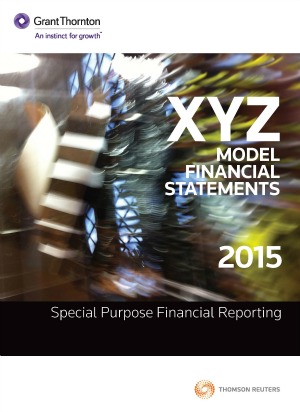Preparing NZ financial statements in 2016
Article author: Mark Hucklesby * Grant Thornton's financial reporting expert.
Significant changes to reporting and filing requirements in New Zealand will need to be addressed ahead of any balance date you have in 2016.
Reissued in 2013, New Zealand’s Financial Reporting Act is umbrella legislation that currently sits above approximately 1,700 pieces of legislation. Not every piece of legislation is hard-wired into this Act, but a great deal of business related legislation is.
The amended Act gives both accounting and auditing standards the force of law. It established the link between the Government, who decide “who” should report under that Act, and the External Reporting Board (XRB), who decide “what” should be reported.
Although the Financial Reporting Act 2013 came into effect on 1 April 2014, many of the changes it proposed will not come into full effect until 2016. That’s because the XRB provided an additional year of relief from the new legislation to enable New Zealand subsidiaries and New Zealand branches of Australian companies to continue to NZ IFRS Differential Reporting and “old” NZ GAAP. However, that relief completely finishes on 30 March 2016. Any New Zealand company or New Zealand Branch after that date must adopt a new basis of accounting, unless they are currently applying “full” NZ IFRS – which generally speaking is quite rare.
Policy objectives of legislation change
The change in legislation was built upon three public policy objectives:
- more public accountability
- greater attention to economic significance and
- provide companies with more than 10 shareholders access to general purpose financial statements, unless they want to contract out of this.
Whilst in place in Australia for a long time, New Zealand companies for the first time can adopt Special Purpose Financial Reporting (SPFR). Many entities in New Zealand can adopt SPFR provided they satisfy certain size and ownership criteria. However, SPFR in Australia is not the same as SPFR in New Zealand.
Key matters New Zealand entities should consider
So what are five key matters that those who are charged with preparing financial statements for New Zealand entities should be take into consideration in 2016?
- Given SPFR can be used for the first time in New Zealand, guidance on expectations of what should be delivered under this regime have been published by Chartered Accountants Australia and New Zealand (formerly the New Zealand Institute of Chartered Accountants)
- If you are “large” as defined in the legislation, then you will have to adopt New Zealand equivalents to International Financial Reporting Standards – Reduced Disclosure Regime, which means you will be adopting IFRS for the first time. This means you will have to go through an IFRS conversion and follow the specific requirements in NZ IFRS 1 (which mirrors the requirements in AASB 1) if you currently report under NZ IFRS Differential Reporting or “old” NZ GAAP
- If your New Zealand entity is no longer required to file with the New Zealand Companies Office because it is not “large”, there are still financial reporting matters that you need to attend to in terms of establishing the basis for accounting to be used for each reporting period
- Know where to go to check out your financial reporting responsibilities and how best to respond to enquiries from the New Zealand Companies Office if they ask why previously filed financial statements are no longer filed, and
- Do not automatically expect a set of financial statements that were prepared under “old” NZ GAAP or NZ IFRS Differential Reporting will fulfil all the requirements of SPFR in New Zealand. Some editing and updates will be required and the XYZ model set of financial statements can assist in helping preparers of the financial statements with that transition process.
In summary, depending on your size and ownership structure, some significant changes to the financial reporting and filing requirements in New Zealand will need to be addressed and carefully considered ahead of any balance date you have in 2016.
Get informed assistance
 To help simplify the transition to the SPFR, XYZ Model Financial Statements – Special Purpose Reporting provides a disciplined and logical process to work through.
To help simplify the transition to the SPFR, XYZ Model Financial Statements – Special Purpose Reporting provides a disciplined and logical process to work through.

Mark Hucklesby is Grant Thornton's financial reporting expert in New Zealand. He has spent the last 20 years working with clients in the public, private and not-for-profit sectors to resolve a wide variety of financial reporting and auditing matters. Mark is an experienced presenter and business reporting commentator who is acutely aware of the operational challenges those preparing or approving financial statements in New Zealand currently face.